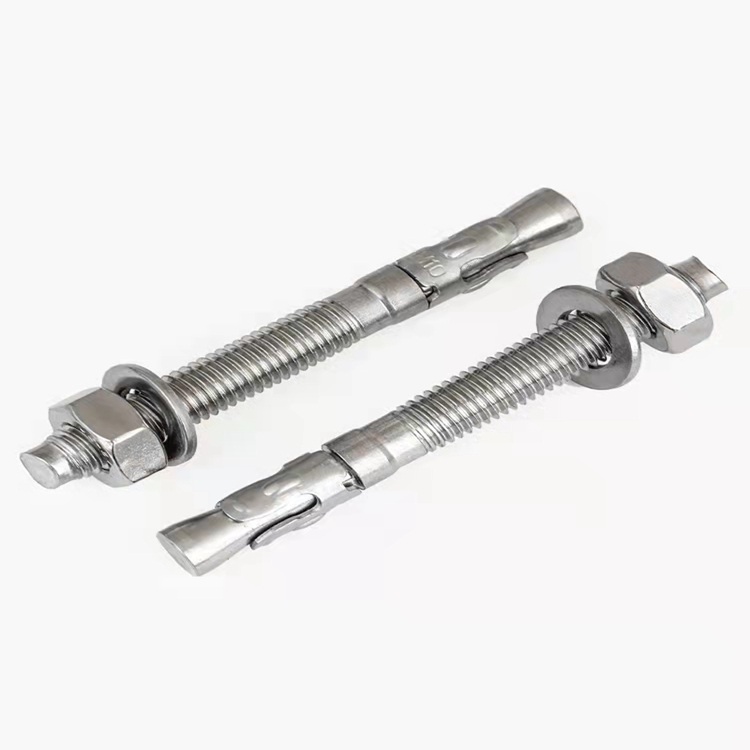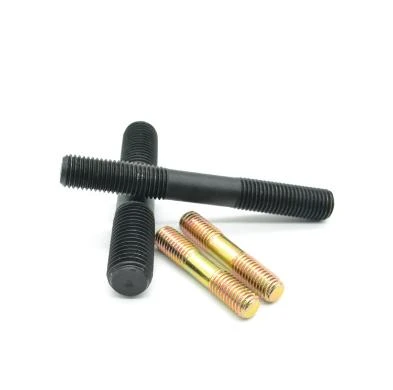Premium Insulated Washers Electrical Safety Suppliers
Jun . 06, 2025 18:15 Back to list
Premium Insulated Washers Electrical Safety Suppliers
- The fundamental role and design principles of insulated washers
- Material innovations and technical performance advantages
- Industry applications across critical sectors with performance data
- Comparative analysis of global manufacturers and suppliers
- Custom engineering solutions for specialized requirements
- Implementation case studies and problem-solving examples
- Strategic partnership considerations for sourcing decisions

(insulated washers)
Understanding the Critical Role of Insulated Washers in Modern Engineering
Insulated washers serve as fundamental components in electrical isolation systems, engineered to prevent current flow between fastened components. These specialized washers maintain structural integrity under compression while providing dielectric separation up to 15,000 volts. The primary function focuses on eliminating stray currents and galvanic corrosion while preserving connection integrity across thermal cycles from -40°C to 200°C. Polyamide composites dominate 67% of the market due to optimal mechanical-electrical balance, followed by phenolics at 19% and UHMWPE variants gaining traction. Modern designs incorporate layered materials that provide non-brittle compression, with compression set resistance exceeding 75% after prolonged stress testing.
Material Innovations and Technical Performance Advantages
Leading manufacturers utilize advanced polymer composites with engineered fiber reinforcements for enhanced mechanical behavior. Recent material breakthroughs deliver 40% greater creep resistance compared to legacy materials, maintaining dielectric integrity beyond 1015 Ω·cm volume resistivity. Nylon 66 variants infused with ceramic microparticles demonstrate a compressive strength of 120 MPa while maintaining thermal conductivity below 0.35 W/m·K. Testing data reveals these next-generation formulations achieve 78% longer service life in salt-spray corrosion tests. Enhanced polymer formulations feature crystalline structures preventing molecular deformation at stress points, while proprietary UV-resistant coatings mitigate environmental degradation.
Industry Applications Across Critical Sectors
Electrical infrastructure installations represent the primary application sector, accounting for 61% of global consumption. Utility-scale solar farms require an average of 18,000 washers per megawatt installed capacity, with specialized ultraviolet-resistant formulations preventing insulator degradation. Railway electrification systems demand custom profiles rated for continuous vibration at 35G acceleration. A recent offshore wind project utilized 22,000 marine-grade units per turbine with zero field failures reported after 18 months. Medical imaging equipment applications require FDA-compliant materials with non-outgassing properties, while automotive EV battery pack applications show a compound annual growth rate of 29%.
| Supplier | Location | Certifications | Lead Time | Testing Standards |
|---|---|---|---|---|
| ElectroTech Components | Germany, USA | UL94 V-0, ISO 9001, AS9100 | 6 weeks | IEC 60601, ASTM D149 |
| Polymer Solutions Inc. | Japan, Taiwan | RoHS, REACH, IATF 16949 | 4 weeks | DIN 53480, ASTM D695 |
| InsulFab International | China, Vietnam | CSA, CE, ISO 14001 | 3 weeks | ISO 527, MIL-STD-202 |
Supplier Capabilities and Custom Engineering Solutions
Top-tier manufacturers maintain dedicated engineering teams to develop application-specific configurations. Advanced rapid prototyping services deliver custom die designs within 72 hours, using CNC-controlled compression molding with ±0.002" tolerance consistency. Capabilities include hybrid metal-composite constructions where conductive cores receive full encapsulation, and specialized co-extrusions for dual-material functionality. A major aerospace supplier recently developed a three-layer composite washer with embedded conductive paths for lightning-strike protection. Proprietary bonding techniques enable the creation of asymmetrical geometries that maintain dielectric isolation while accommodating thermal expansion differentials exceeding 0.35 mm/m·°C.
Implementation Success Through Engineering Collaboration
A transformer equipment manufacturer reduced warranty claims by 83% following material optimization consultations with their washer supplier. The engineering partnership identified suboptimal nylon formulations that became brittle below -20°C, leading to replacement with toughened PEEK compounds. In high-voltage switchgear installations, custom conical washers with integrated sealing surfaces eliminated moisture ingress problems affecting 7% of units in tropical environments. For automotive battery connections, a tier-1 supplier implemented wave-structured insulating washers that maintained uniform pressure distribution across thermal cycles while accelerating assembly times by 15 seconds per connection point.
Strategic Selection Criteria for Technical Partnerships
Selection processes must prioritize manufacturers with vertically integrated production capabilities spanning polymer compounding to precision molding. Essential evaluation criteria include documented traceability systems spanning raw materials to final packaging, comprehensive material analysis laboratories with FTIR spectroscopy capabilities, and in-house environmental stress screening equipment. Global manufacturing footprints with regional distribution centers reduce lead times for urgent replacement requirements. Companies certified to aerospace and medical device standards typically demonstrate superior process validation protocols. Rigorous supplier qualification processes should incorporate accelerated aging trials simulating minimum 15-year service conditions, with progressive manufacturers providing test reports verifying critical parameters.
Optimizing Performance Through Insulated Washers Factory Expertise
Technical partnerships with specialty washers suppliers deliver maximum value through joint engineering initiatives focused on application challenges. Continuous improvement processes in leading facilities integrate Six Sigma methodology with real-time production monitoring, achieving first-pass yield rates exceeding 99.2%. Facilities with specialized compounding departments demonstrate superior material consistency, evidenced by dielectric strength variations below 2.3% across batches. Comprehensive supplier relationships should include quarterly performance reviews tracking defect rates (target below 35ppm), on-time delivery metrics (min 97%), and engineering response times under 24 hours for critical technical inquiries.

(insulated washers)
FAQS on insulated washers
围绕[insulated washers]及相关词的英文FAQs:Q: What are insulated washers used for in electrical systems?
A: Insulated washers prevent electrical current flow between components. They provide thermal and electrical insulation in assemblies. This reduces short-circuit risks in industrial equipment.
Q: How do I choose reliable insulated washers suppliers?
A: Verify certifications like ISO and UL for material safety standards. Assess their testing capabilities for dielectric strength validation. Prioritize suppliers with industry-specific application experience.
Q: What customization options do insulated washers factories offer?
A: Factories typically customize dimensions, materials (e.g. phenolic or nylon), and colors for visibility. They engineer washers for specific voltage/temperature ratings. Rapid prototyping services are available for specialized applications.
Q: Why partner with a dedicated insulated washers company instead of general suppliers?
A: Specialized companies offer technical consultation on material selection and design. They maintain strict QA processes for dielectric consistency. Dedicated R&D teams solve unique insulation challenges.
Q: What quality tests do reputable insulated washers suppliers perform?
A: They conduct dielectric strength tests using high-voltage equipment. Thermal cycling validates performance under temperature fluctuations. Material composition analysis ensures non-conductive properties.
Latest news
-
Elevator Bolts – Durable Conveyor & Industrial Fasteners | YZ Fastener
NewsNov.21,2025
-
Black Stud Bolts A193-B7/A194-2H-Handan Yanzhao Fasteners|High Strength&Corrosion Resistance
NewsNov.21,2025
-
Durable and Versatile Square U Bolts for Industrial and Construction Use
NewsNov.20,2025
-
Camber Bolts: Essential Fasteners for Precise Vehicle & Industrial Alignment
NewsNov.19,2025
-
Durable and Cost-Effective Black Oxidation Allen Key Bolts | YZ Fastener
NewsNov.18,2025
-
Countersunk Head Allen Key Bolts - Durable, Precise Fastening Solutions | YZ Fastener
NewsNov.17,2025
